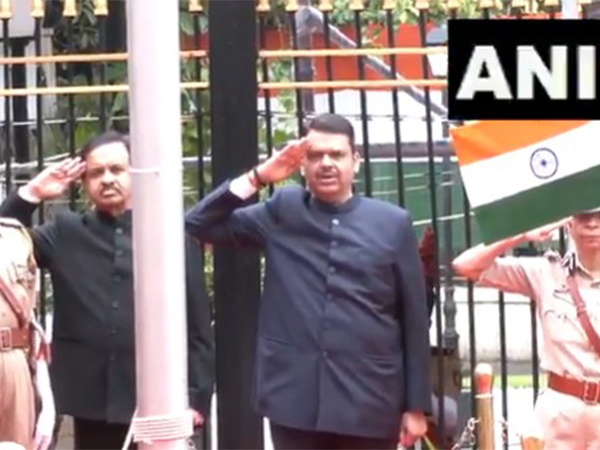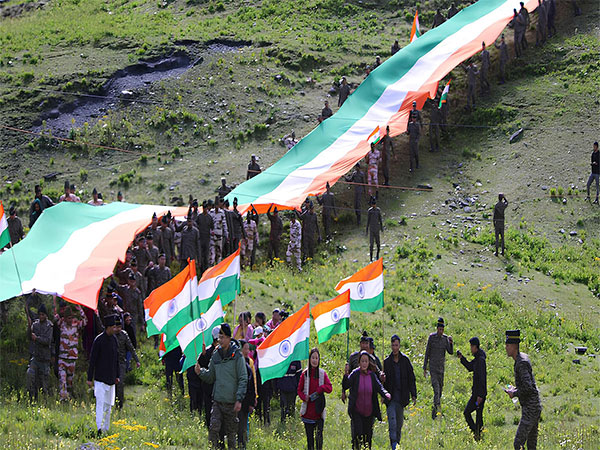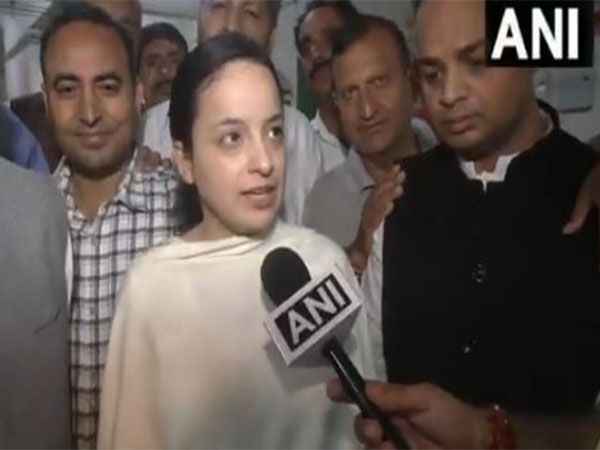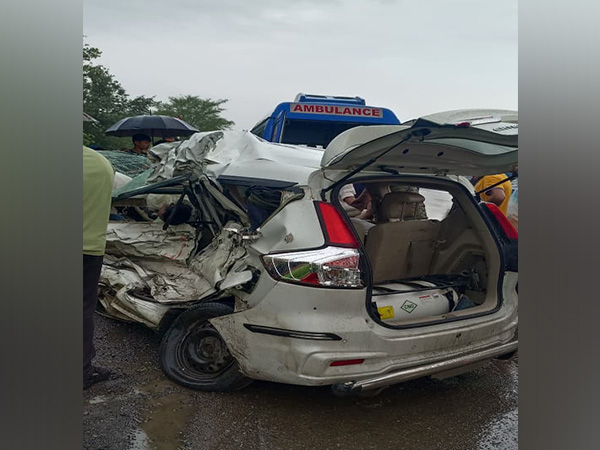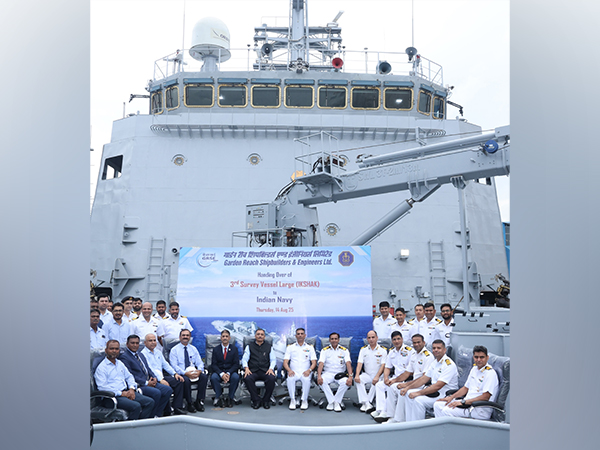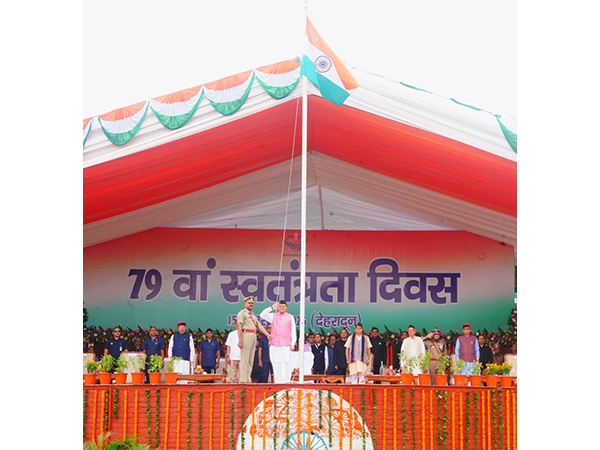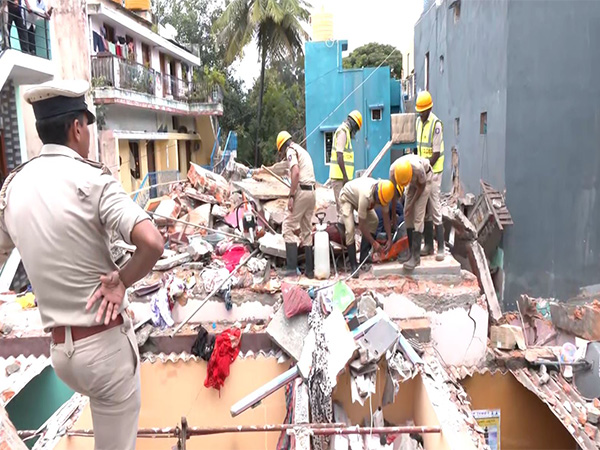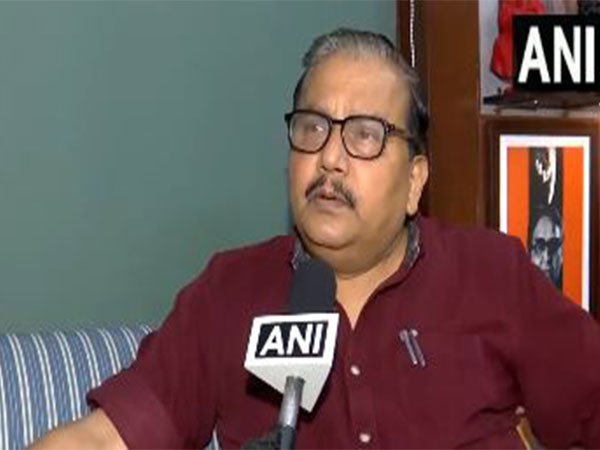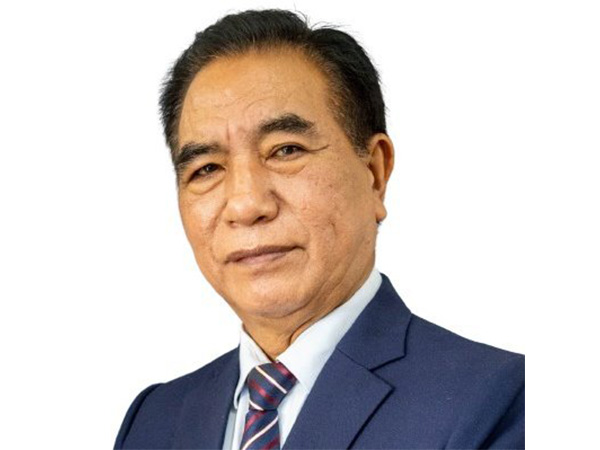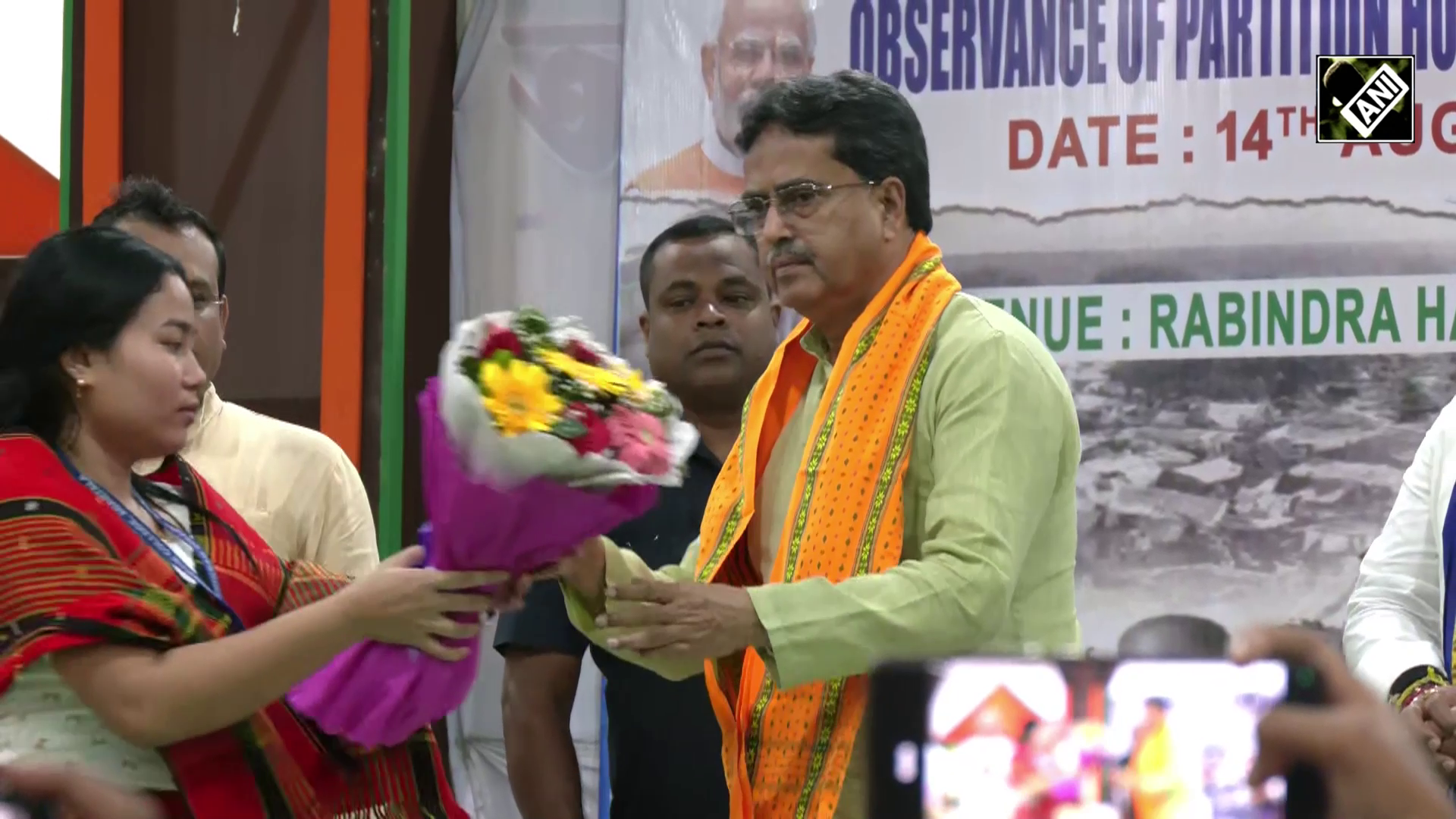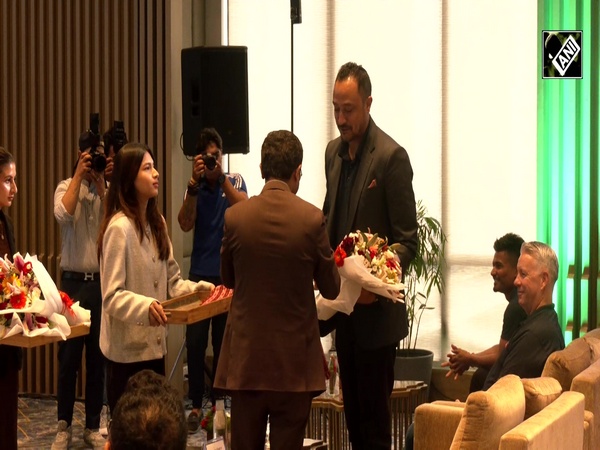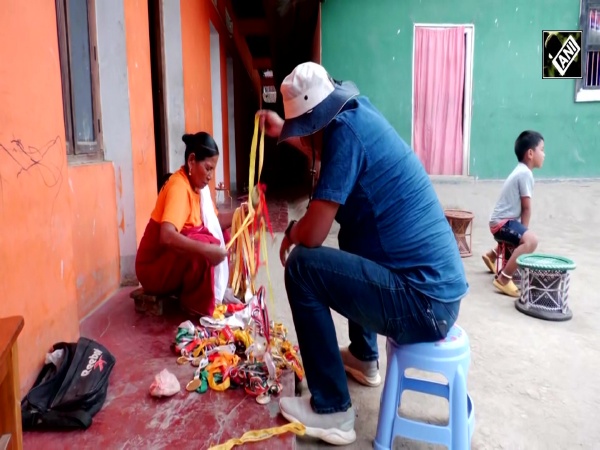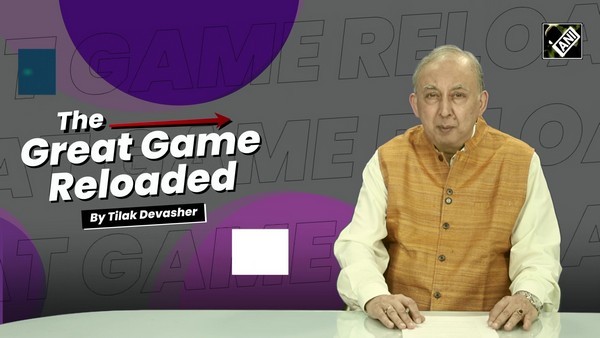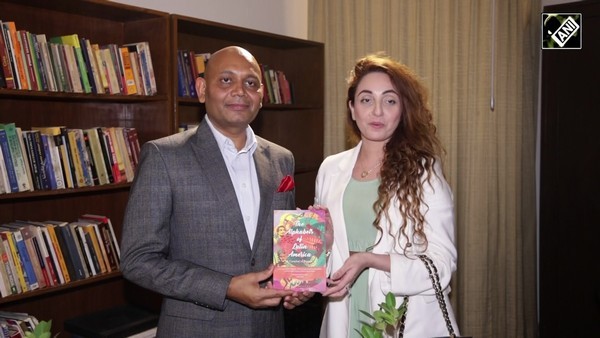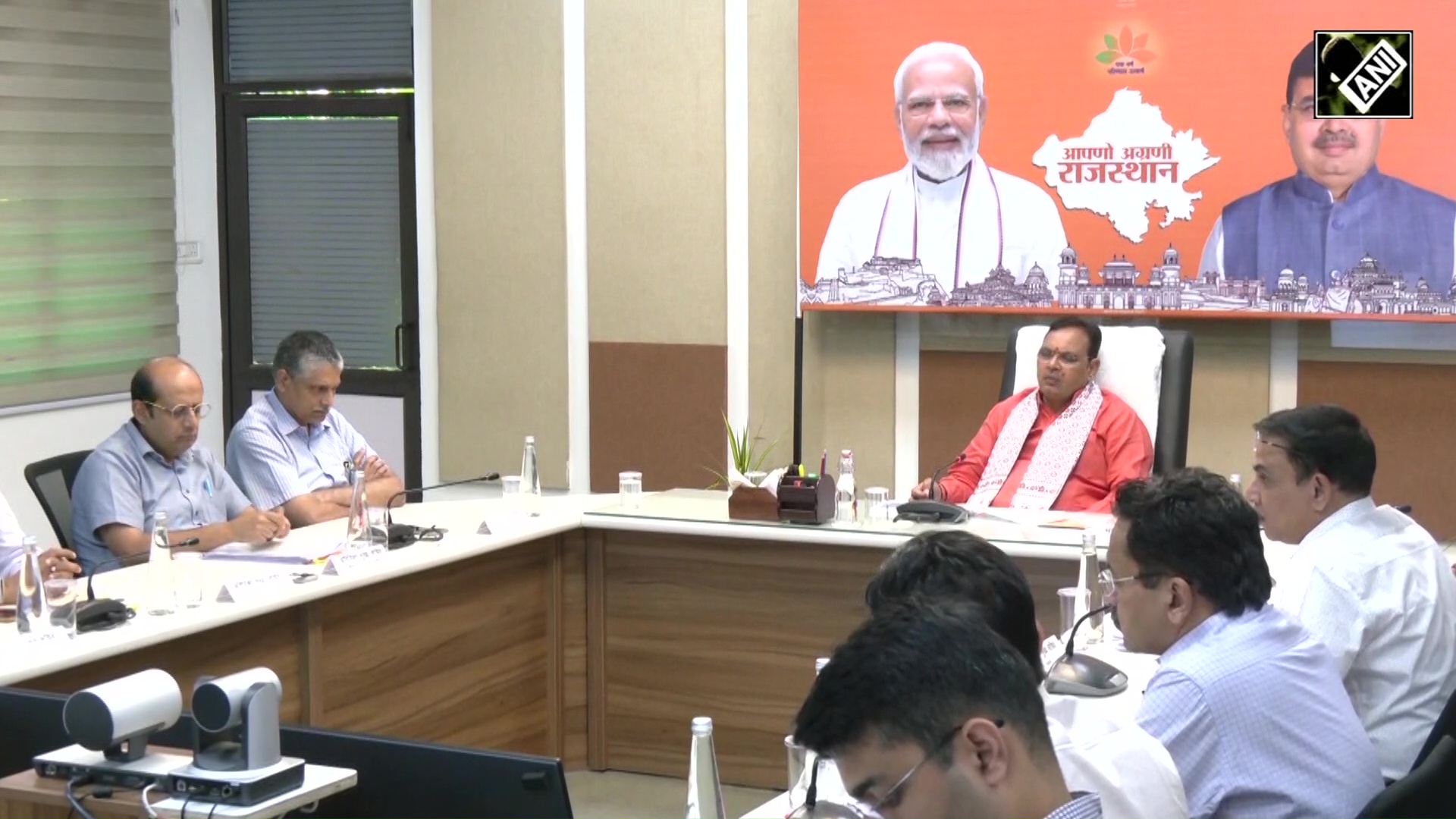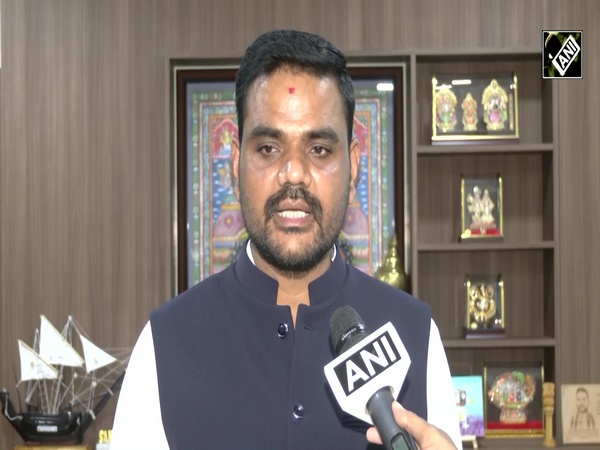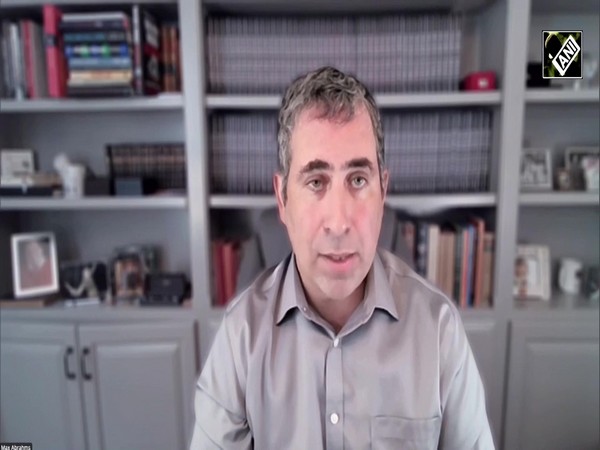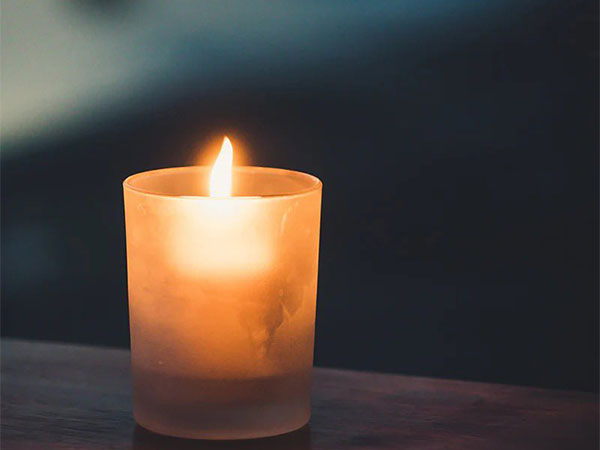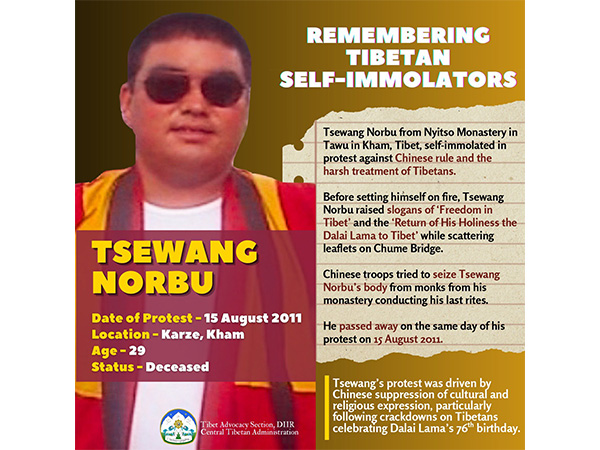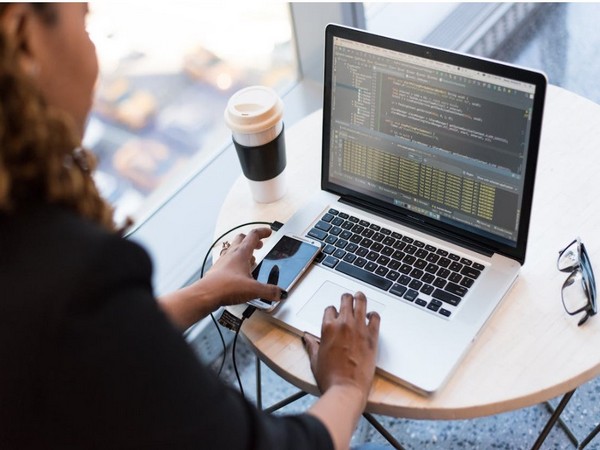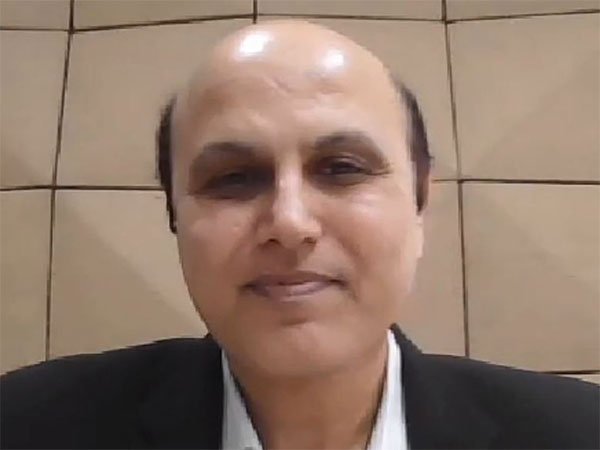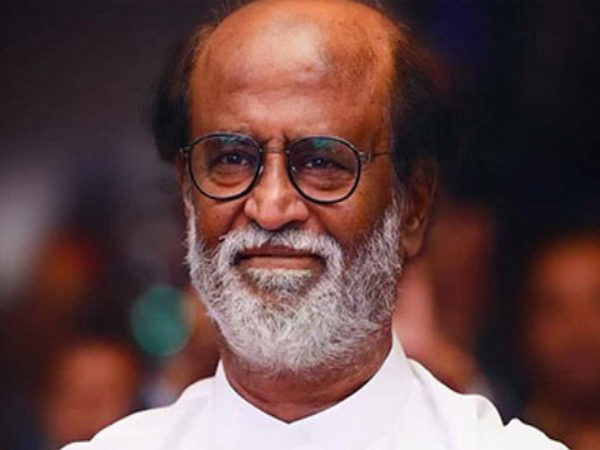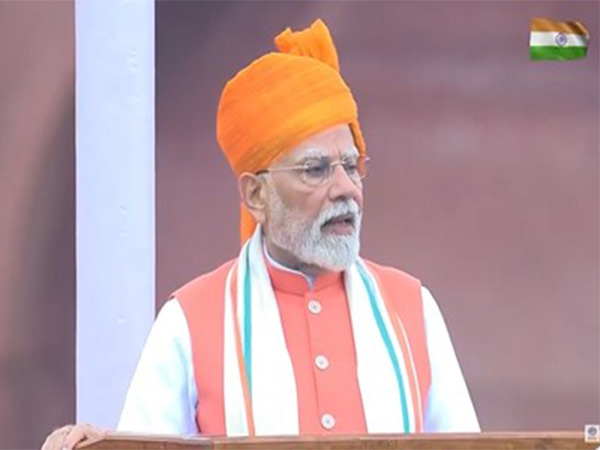
PM Modi hails 'Atmanirbharta' as a foundational plank for Viksit Bharat
Aug 15, 2025
New Delhi [India], August 15 : Prime Minister Narendra Modi, delivering his 12th consecutive address on Independence Day, underscored 'Atmanirbhar Bharat' (self-reliant India) being a foundational plan for 'Viksit Bharat' (developed India), with the idea permeating across different sectors including in defence, space, clean and renewable energy, agriculture, mineral exploration.
"Whoever is dependent on others too much, there are as big questions raised on one's Independence. It becomes truly unfortunate when we get used to being dependent. We don't even get to know when we are leaving atmanirbharta and becoming nirbhar, that is why we need to be alert and awake to be independent," PM Modi said in his address from the ramparts of the Red Fort.
In the Defence sector, Prime Minister Modi announced the launch of 'Mission Sudarshan Chakra', aimed at neutralising enemies and enhancing India's offensive capabilities. Drawing inspiration from India's rich cultural and mythological heritage, the 'Sudarshan Chakra' is the weapon of Lord Krishna.
"This mission underscores India's commitment to strategic autonomy, ensuring rapid, precise, and powerful responses to any threat," read an official statement.
"In the next ten years, by 2035, I want to expand, strengthen, and modernise this national security shield. Drawing inspiration from Lord Shri Krishna, we have chosen the path of the Sudarshan Chakra," PM Modi said at the ramparts of the iconic Red Fort.
"The nation will be launching the Sudarshan Chakra Mission, the entire modern system should be researched, developed, and manufactured in India, harnessing the talent of our youth. This powerful system will not only counter terrorist attacks but also strike back at the terrorists," he added.
This mission aims to develop its own Dome-like defence system, which is designed to safeguard critical sites, including civilian areas.
Highlighting India's defence self-reliance shown during Operation Sindoor, he emphasized how indigenous capabilities, including Made-in-India weapons, enable India to act decisively and independently, proving that national security cannot rely on foreign dependence.
He further urged the young people of the country, to develop jet engines within the country, adding, "Today, I urge the young scientists, talented youth, engineers, professionals and all departments of the Government that we should have our jet engines for our own Made in India fighter jets."
Emphasising India's growing semiconductor industry, PM Modi announced that 'Made in India' semiconductor chips will be launched by the end of 2025. He further talked about innovation in AI, cybersecurity, deep-tech, and operating systems for global competitiveness.
In the space sector, the Prime Minister celebrated the achievements of Group Captain Shubhanshu Shukla, who recently returned from a mission at the International Space Station (ISS), and is also part of the Gaganyaan mission for India's first manned space flight.
"We are all seeing the feat in the space sector, and we are filled with pride. Group Captain Shubhanshu Shukla has returned from ISS (International Space Station), and in the coming few days, he will be coming to India. In space, we are preparing for Gaganyaan, as aatmanirbhar Bharat," he said.
On indigenous development, over 300 startups are contributing to working towards developing the sector, PM Modi said.
On the strides made in clean and renewable energy, PM Modi announced how the plan for achieving 50 per cent clean energy, originally set for 2030, was achieved by years early, with solar, nuclear, hydro, and hydrogen energy advancing in technology, helping with energy independence.
He noted that 10 new nuclear reactors are currently operational and emphasised that by India's 100th year (2047) of independence, the nation aims to increase its nuclear energy capacity tenfold, strengthening energy self-reliance and supporting sustainable growth.
On the 'National Critical Minerals mission,' which will help with getting natural resources for various sectors, PM Modi mentioned how over 1,200 sites have been explored, with the control of these sites strengthening strategic autonomy and ensuring that ithe ndustrial and defence sectors remain self-reliant. Similarly, the 'National Deepwater Exploration Mission' will also explore resources across oceans and other deep waters.
On emphasising protection of farmer interests to maintain self-reliance in the agriculture sector, PM Modi mentioned that he "Stands tall like a wall in front of policies against farmers." His remarks were made amid the United States looking to open up India's agriculture sector for its western producers, with the US president, Donald Trump, levying an additional 25 per cent tariff as a "penalty" for buying Russian oil.
However, PM Modi stressed the urgent need to produce fertilisers domestically to empower farmers and protect national food security, and reduce import dependence.
In his 103-minute-long speech, the PM also called on the young people to develop India's own social media platforms and digital infrastructure, ensuring communication, data, and technological ecosystems remain secure and independent. Similarly, he mentioned India's strength as the "pharmacy of the world," and stressed the need to invest in more research and development.
"Shouldn't we be the ones providing the best and most affordable medicines for the welfare of humanity?" he asked.
The PM also urged people to champion India-made goods under the "Vocal for Local" initiative, stressing that Swadeshi should stem from pride and strength, not compulsion. He called for visible promotion, such as "Swadeshi" boards outside shops, to boost self-reliance, support entrepreneurship, and strengthen India's economic and industrial base.
'Atmanirbhar Bharat' is a policy framework released by the Centre in 2020, which aims to promote self-sufficiency and reduce dependence on exports. The policy has been inspired by Mahatma Gandhi's 'swadeshi movement,' revived from the pre-Independence era for modern times.
